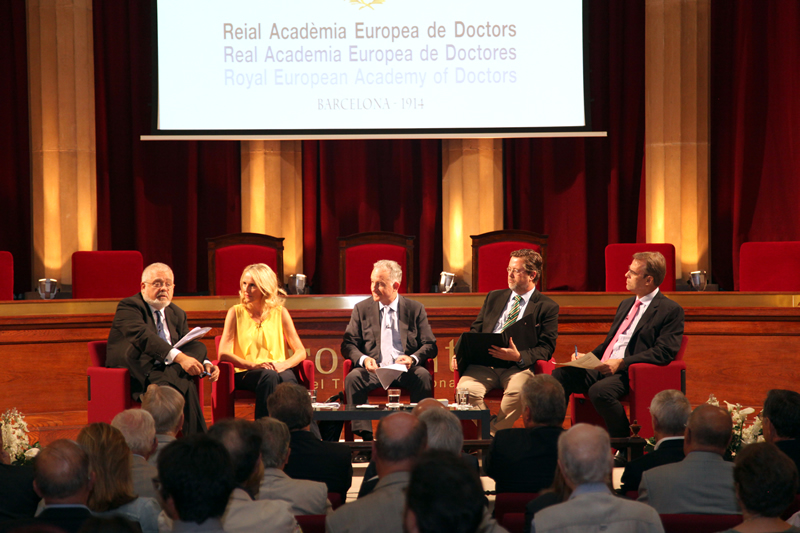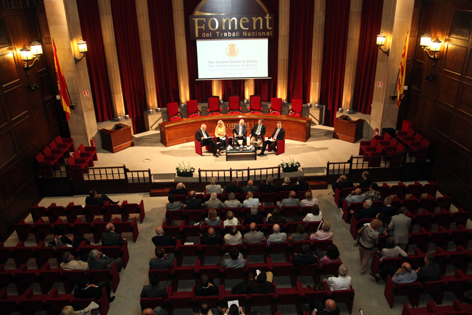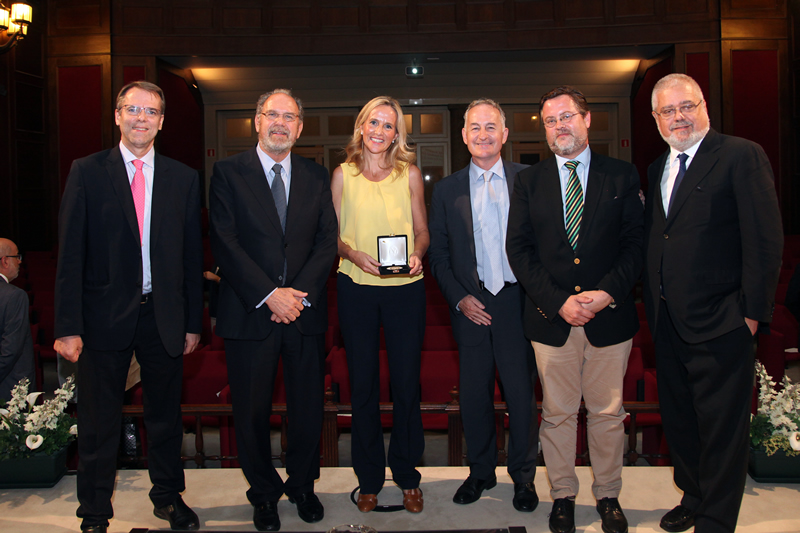The Royal European Academy of Doctors-Barcelona 1914 (RAED), hosted last September 15 the first sessions of a cycle that will try to analyze from a multidisciplinary view the future of the European Union (EU). The Brexit, as known to the exit of the UK from the Union approved by referendum, focused the first of the debates, with the participation of academicians Oriol Amat, Santiago Castellà and Juan Francisco Corona, besides the British diplomatic Pollyanna Nethersole, vice-consul in Barcelona between 2007 and 2010. The event was lead by Joan Francesc Pont, also academician. The speakers agreed on the Brexit see both a challenge for the whole of the union as an opportunity for its member states.
“The output of the UK is a good opportunity for the British and for the European project itself: UK can find a more satisfying relationship with the Union and the Union rethink excessive bureaucracy”, reflected Amat.
“The EU was already in crisis since its constitutional failure and drew a legally correct solution with the Treaty of Lisbon, but with deficits -Castellanos added-. Now the Union is challenged to regain its pro-European force”.
To Nethersole, the great hurt of Brexit is a whole generation of British. “A 75% of young people between 18 and 24 years betting on the permanence but few went to vote. Instead, old people did so for departure and stolen the future young people”, she said. To the diplomat, the referendum was “a great democratic experiment that should not be repeated again”.
Finally, Corona focused his concern on the effects of output on the markets. “It is worrying that a third of the Ibex is strongly established in the UK and this will affect a lot, not the results or the products and services they offer, because they are well established, but the important workforce that Spanhish companies have there -reflected-. The impact unfortunately will not be good for either, the United Kingdom, Spanish or EU companies”.




